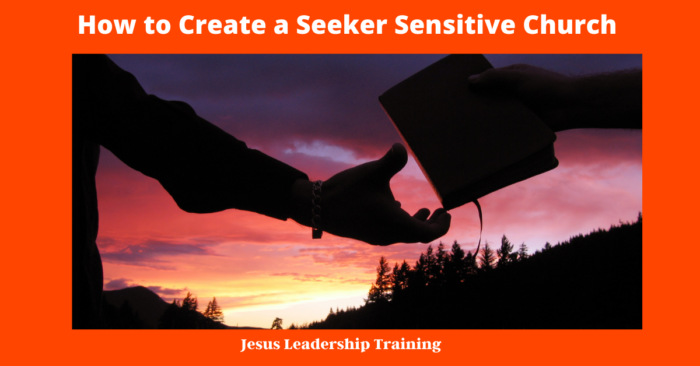Table of Contents
What is a Seeker Sensitive Church
All churches are not created equal. Seeker-sensitive churches are designed to be attractive to seekers, that is people who have never been in church before or who don’t know much about Christianity.
Seeker-sensitive churches do this by making their services more welcoming and accessible for newcomers, using language the seeker can understand, and integrating technology into their worship experience. This article will cover what a seeker-sensitive church is, why it’s important for your church to become one if they haven’t already done so, how you can create one of these types of churches in your own community – whether you’re an established congregation or just starting out.

What is a Church Seeker?
A church seeker is a person who has not been to church or does not go regularly. Seeker-sensitive churches are designed for these types of people – so they can find their way around more easily and be able to join in on services with relative ease.
Why do you Need One?
Most Baptist denominations require that each individual congregation have a seeker-sensitive church. Seeker-sensitive churches are the future of modern Christianity – and that’s not just because they’re using newer, more engaging technology like video screens instead of hymnals to help with their services.
Seeker-friendly churches reflect the changing demographics in America; as our nation becomes increasingly multicultural, so too must our congregations. Seeker-sensitive churches are a fantastic way for Christian communities to become more multicultural, while still maintaining their faith.
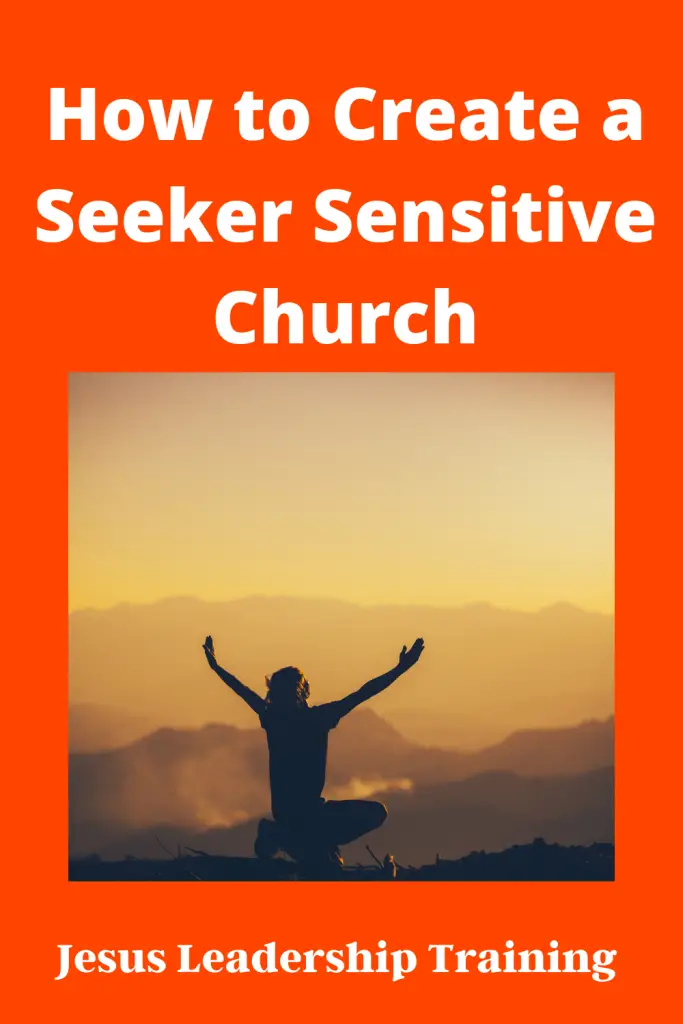
Seekers don’t have the same background or familiarity with Christianity as other churchgoers do – so they need something that speaks directly to them. Seeker-friendly services eliminate any barriers between seekers and God by using language people are more comfortable with and putting technology to use in a way that doesn’t feel overbearing or distracting. Seeker-friendly churches are great because they’re welcoming for seekers while still remaining traditional enough so the existing congregation isn’t alienated by any of the changes being made.
How do you go about Creating One?
First, determine what type of seeker-sensitive church you want to create. Seeker-friendly churches come in all shapes and sizes, from the casual environment of a storefront church with folding chairs and coffee bars to traditional churches that are simply incorporating new technology into their services. Once you know what type of seeker-sensitive church your congregation wants, it’s time to start creating!
One way Seeker-friendly churches are created is by taking the seeker’s perspective and thinking about what they need to feel comfortable attending your church. Seeker-sensitive churches should have an open-door policy where people can come in at any time, even if it’s their first time – so make sure you’ve got someone there who will greet them warmly and answer any questions they might have.
What is Vision Casting – Proverbs 29:18 says, “Where there is no vision, the people perish
Check this vision – I would follow this – Greg Gaines
Seeker-friendly churches should also be inviting, so make sure your seating is comfortable and accessible (folding chairs or no chairs at all). Seeker-friendly churches take technology to the next level by incorporating new media like video screens into their services; even if this isn’t something you’re interested in doing yourself, you can encourage your members to take advantage of the readily available resources like Youtube videos that are out there.
Seeker-sensitive churches should also do a good job with social media and their online presence; make sure you’re using websites, forums, blogs, and social networking pages as well as any other technology at your fingertips.
When creating a seeker-friendly church, it’s also important to be open and welcoming of seekers while still remaining true to your core values. Seeker-sensitive churches should avoid watering down their faith or removing the things that are most important to them; instead, they can incorporate new ideas and methods without compromising their beliefs.
Seeker-sensitive churches also know when it’s time for change – even if they don’t want to make that change themselves, but there are changes happening all around them (the fact that seekers aren’t coming to church anymore is a good indication that it’s time for change). Seeker-friendly churches are flexible enough to make changes in order to stay relevant and attract new members.
Seeker-friendly churches know exactly what they want – whether or not you do, take their perspective into account when creating a seeker-sensitive service. Seeker-friendly churches don’t water down their beliefs, but they do work hard to make themselves accessible and inviting to the people who aren’t already part of their congregation.
Seeker-sensitive churches keep up with changes in technology and are flexible enough to change as necessary while still remaining true to what’s most important about them; if you want your church to be Seeker Sensitive, then you have to be Seeker-Friendly.
Is Saddleback Church a Seeker-Friendly Church?
Seeker-friendly churches are focused on creating a comfortable environment for the seekers who don’t yet attend their church, so in order to answer this question, we must determine whether or not Saddleback is Seeker Sensitive.
Saddleback Church has been widely criticized as being seeker-insensitive; these criticisms stem from Rick Warren’s belief that Seeker-Sensitive churches water down their message in order to draw more people. Seeker-Sensitives are focused on growing the church, and so they sometimes neglect those who already attend; Saddleback has been accused of being too Seeker Sensitive – that is, not Seeker sensitive enough.
So then we see that Saddleback Church is Seeker Sensitive and that they are not seeker-insensitive. Seeker-Sensitive churches aren’t necessarily looking to grow the church by drawing more people with watered-down messages – Saddleback’s Seeker sensitivity is focused on providing a comfortable environment where seekers can experience God without feeling out of place.
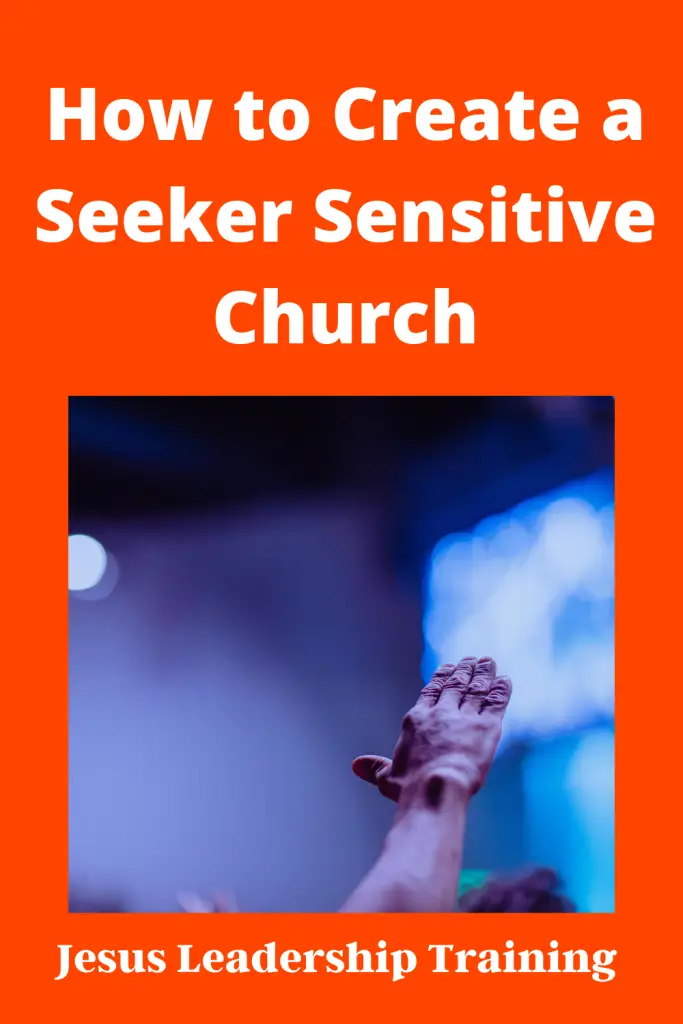
What is Seeker Service?
Seeker services are designed with Seeker-Sensitives in mind – that is, they want to attract people who don’t currently attend church. Seeker Services typically include general information about the church and its beliefs for visitors; there may also be a Q&A session or some other interactive element of the service.
Seeker services often use big screens and projectors to allow those who aren’t in the room to see what’s happening. Seeker services are designed for people without church backgrounds – they want everyone to feel welcome, whether or not you have any experience with churches. Seeker services may be led by pastors but it is typically more important that these leaders know how to connect with visitors than that they know how to deliver a sermon.
Seeker services are designed for those who don’t feel like the church is the right place for them – if you’re not sure what seeker service is, then it’s exactly what you need!
What are the Characteristics of a seeker Sensitive Church?
Seeker services are designed with Seeker-Sensitives in mind – that is, they want to attract people who don’t currently attend church. Seeker Services typically include general information about the church and its beliefs for visitors; there may also be a Q&A session or some other interactive element of the service.
Seeker services often use big screens and projectors to allow those who aren’t in the room to see what’s happening. Seeker services are designed for people without church backgrounds – they want everyone to feel welcome, whether or not you have any experience with churches. Seeker services may be led by pastors but it is typically more important that these leaders know how to connect with visitors than that they know how to deliver a sermon.
Seeker services are designed for those who don’t feel like the church is the right place for them – if you’re not sure what seeker service is, then it’s exactly what you need!
What are the Characteristics of a seeker Sensitive Church?
Some of the characteristics of Seeker Sensitive Churches include seeker-friendly worship, Seeker Service (mission), Seeker Celebration (service), and Seeker Communication.
Seeker friendly Worship – Seeks to reach out to those who are attending church for the first time or do not regularly attend. It is done with contemporary music that a majority of people are familiar with and often lead by someone other than the pastor.
Seeker Service – Seeks to serve those in need within the community, usually through a missions committee. Seeker Celebration (Service) – Seeks to provide church members an opportunity to not only share their faith but also connect with others who have similar interests such as hobbies or sports teams.
Seeker Communication – Seeks to provide various ways for people to get involved including through social media and email newsletters.
Seeker Service (mission)
A seeker service is a church program that seeks to serve those in need within the community, usually through a missions committee. Seeker services are often used as an alternative outreach method designed to be more “low-pressure” to those who do not attend church regularly. Seeker services are often combined with Seeker Celebrations, and Seeker Communication is used to promote these events.
What is a Seeker-Oriented Outlook?
Seeker sensitive is a term used to describe churches that seek to attract new people (seekers) by meeting the felt needs of their community. Seeker-sensitive churches are those which do not have an evangelistic vision and whose key focus is on providing social support rather than preaching repentance from sin, Christ as Savior, grace, or spiritual growth.
They are often referred to as Seeker-Sensitive churches or Seeker Churches. They are not a new phenomenon but rather were made popular by Rick Warren in his book “The Purpose Driven Church”. Se Seeker-sensitive churches and the Seeker movement are now being championed by many pastors across America as a new way to attract people into their church.
This is not the first time that this has happened in American history, back in 1875 at the height of popularity for Charles Finney’s theology there was a large push towards seeker-sensitive revivals.
What are the 2 Types of Churches?
Seeker-driven churches are the most common in America. They were very popularized by Bill Hybels at Willow Creek Church in Chicago during its early days. Seeker-driven churches focus on what people can get out of church rather than giving God glory for who He is, which leads to self-centeredness and a lack of motivation to go beyond the four walls of a church.
Seeker Resistant Churches Seeker resistant churches are where most traditional, liturgical or mainline protestant denominations fall into (e.g., Catholic Church). Seeker resistance is characterized by trying not to offend anyone and therefore avoiding controversial topics that might push people away from attending your church in fear that they may be offended.
Seeker Sensitive Churches Seeker sensitive churches are the ones that Jesus started—healthy, vital, and growing in every way (see I Corinthians 12). Seeker sensitivity is where we have moved away from seeker resistance and towards being unashamed of the gospel so that people can receive Christ as their Savior rather than just a “religious experience.” Seeker-sensitive churches focus more on getting people into a relationship with Christ and less on programming that might lead to self-centered motivation.
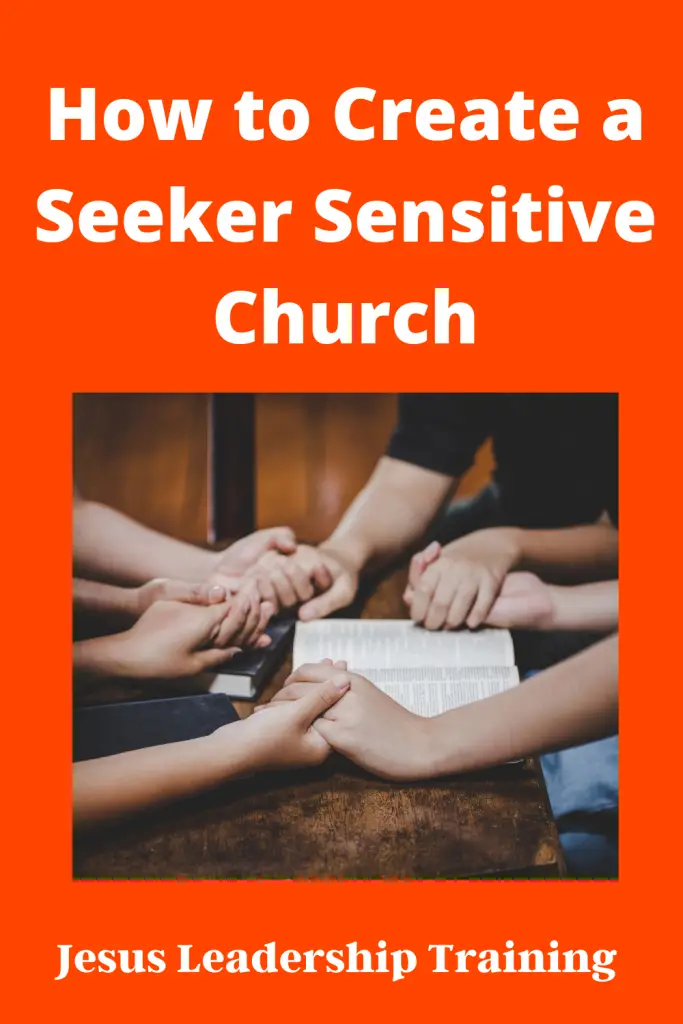
What are the Different Types of Church Services? Traditional / Progressive
The Seeker Sensitive church was initially developed as an attempt to reach out to a larger audience by removing things that Christians may feel are negative.
One of the main ways churches thought they could accomplish this is by changing their service style and not focusing on what others would consider “traditional.” There have been several different types of services created in an attempt to do this, and some have had more success than others.
The Seeker Sensitive church not only changes the style of their service but also trains pastors and community leaders to become better equipped as well.
One specific type of seeker-sensitive church is called a “seeker-friendly” or “nonsectarian” church. This was one way that churches tried to attract people who had never been to a church before or who may have had a negative experience with churches in the past. Seeker-friendly and nonsectarian churches are very similar, but there is one distinct difference:
Seeker sensitive churches welcome religious discussions while seeker-friendly/nonsectarian do not want their congregation getting involved in that type of dialogue.
Another type of Seeker Sensitive church is the “seeker enabled” or “multi-congregational” style. This type of service allows members to be more involved in what goes on during mass, services and even gives them a chance to change it up if they are not satisfied with their current structure.
Why is there Disunity in the Church?
Disunity in the church is a result of tension between two different ways to interpret scripture. Seeker-sensitive churches focus on understanding why people are not coming to discover that they have been interpreting scriptures incorrectly, while conservative
Christians believe it is their responsibility as believers to preach what they see as biblical truths and let anyone who agrees with them into their church. Seeker-sensitive churches are interested in discovering why people do not go to church, while conservative Christians believe that the church should be a place where people who agree on all doctrines can come together and worship God without any outside influences changing their minds or beliefs.
Who Started the Church Growth Movement?
The earliest we find reference to Seeker Sensitive Church is Charles Finney.
Finney’s Seeker Sensitive Churches, though not called by the term “Seeker” yet, was popularized in the early 1800s.
While Seeker Sensitive Church was largely ignored for many years after Finney died (he passed away at age 79), it resurfaced again when Bill Hybels and Ed Young introduced Seeker Sensitive Church to the Pentecostal movement.
Today, Seeker Sensitive Churches are a staple of modern churches across many denominations and nationalities.
Rich Warren started a Baptist Congregation that was focused on reaching out to the Lost. “Following Jesus Teaching – Go into all the World”
In order to be Seeker Sensitive, a Church should have the Following Characteristics:
– Seeker Friendly Congregation/Community (Receptive)
– Seeker Focused Teaching (Inviting)
– Seeker Engaged Community Life (Responsive)
Seekers are defined as those who are not yet in our church. Seeker Friendly implies that a seeker will feel welcome and comfortable when they first walk through the doors of your church. A Seeker Focused Teaching is one where we teach/preach about who Jesus is, what it means to follow Him, why He matters for us today, and how we can have relationships with people around us
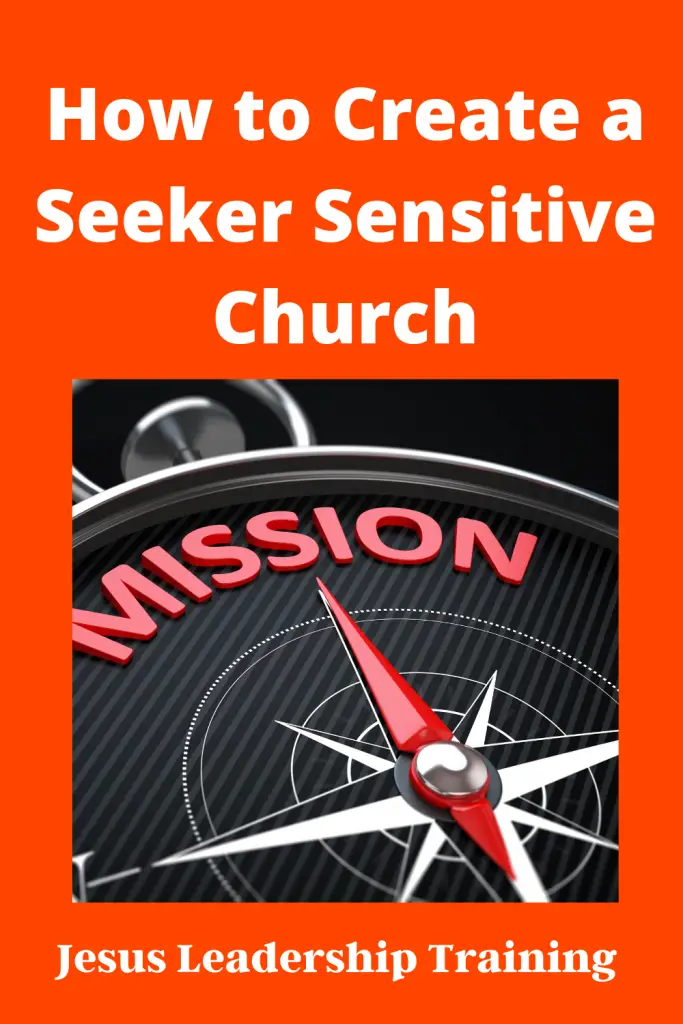
Final Thoughts
The Seeker Sensitive Church is a movement that has been around since the 1800s but resurfaced with Bill Hybels and Ed Young in the 1970s. Seekers can feel welcome and comfortable in Seeker Sensitive Churches because these churches are seeker-friendly. Seeker Focused Teaching invites seekers to learn about Jesus, why He matters and how they can have relationships with people around them. A Seeker Engaged Community Life helps seekers become maturing followers of Christ by making sure that everyone is committed to the church body through service.



